Hotel that sparked Richard Branson’s love affair with Morocco fully open for first time since 2023 earthquake
Kasbah Tamadot suffered extensive structural damage and was forced to shut its doors for a year
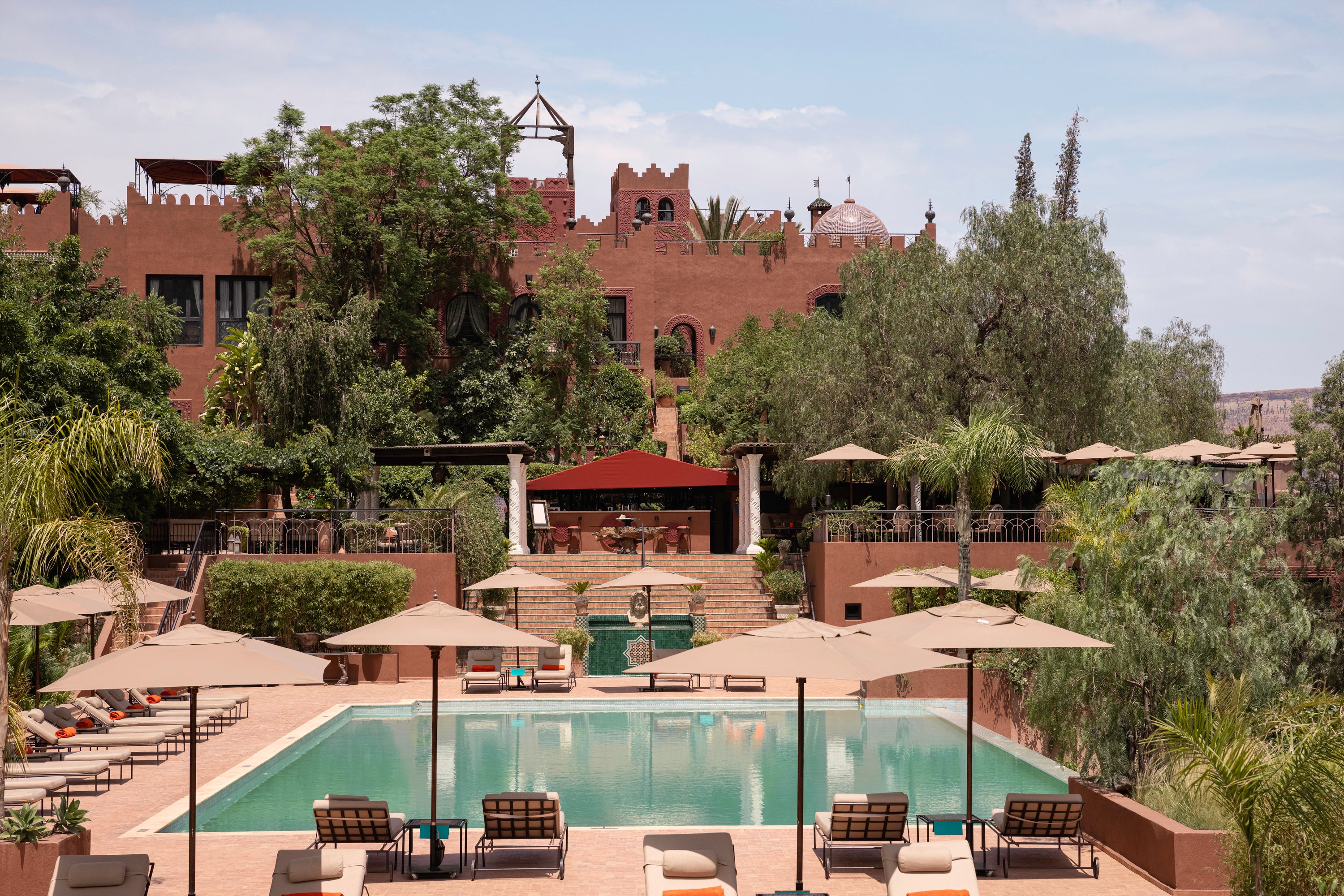
It was a normal Friday night, an evening just like any other, when the ground started to shudder. But for the remote and rural villages deep in the High Atlas Mountains of Morocco, life would never be the same again.
Measuring a terrifying 6.8 on the Richter Scale, the earthquake of September 8, 2023 left deep and devastating scars. Nearly 3,000 people lost their lives with many more injured and displaced. The quiet villages of Adassil and Imlil were among the hardest hit but even the throbbing metropolis of Marrakech – some 72km away – did not escape unscathed.
Buildings were damaged and towers crumbled, most notably among them the fabled and much-loved Koutoubia Mosque, which has been a symbol of the city since its construction in the 12th century.
Morocco – a proud and gentle nation so heavily dependent on tourism – was on its feet.
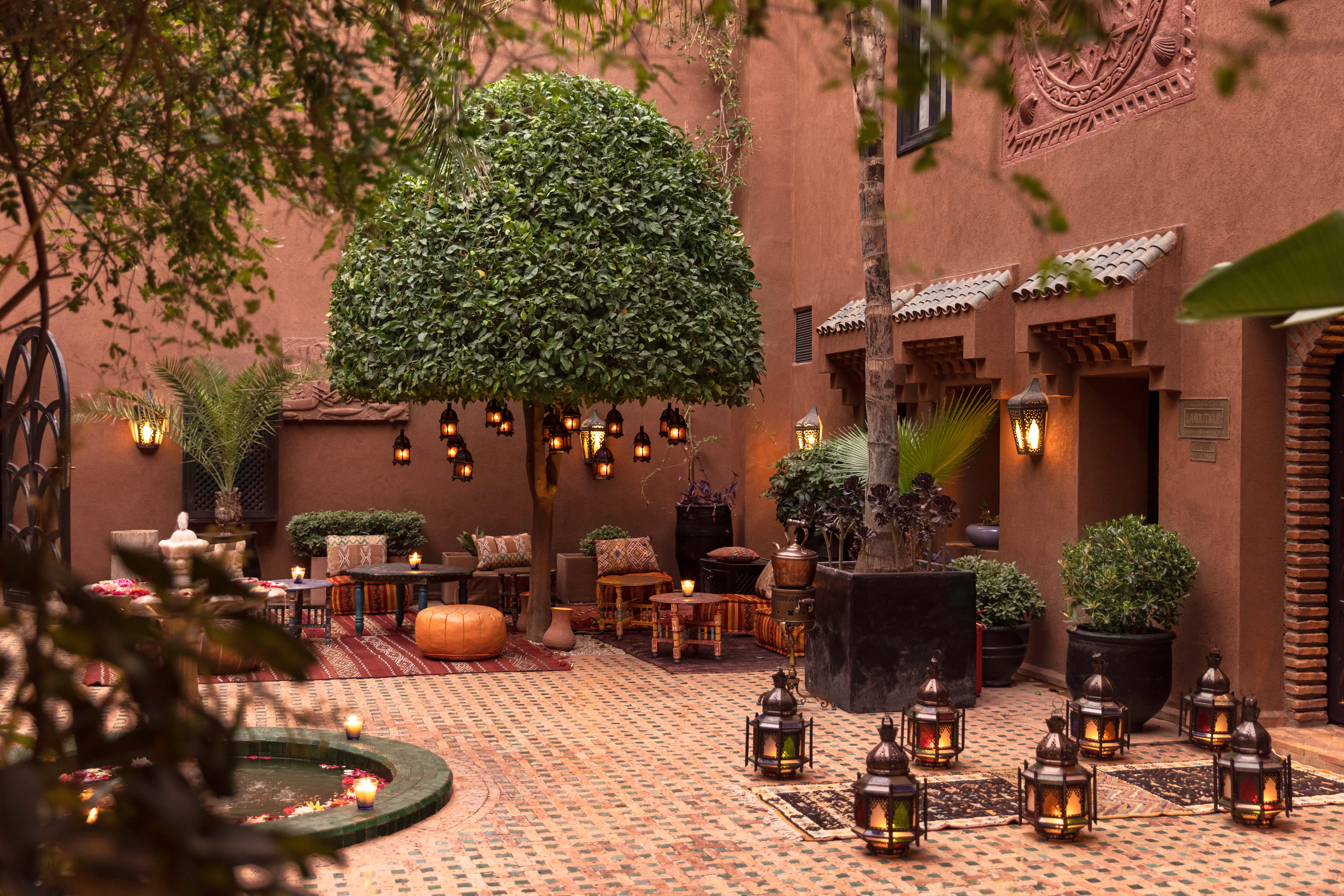
Read more: Meet the women blazing a trail through the majestic mountains of Morocco
Among the hotels hardest hit was Kasbah Tamadot, the dusky-red hilltop fortress owned by Sir Richard Branson which overlooks a deep valley in the shadow of Mount Toubkal, the highest peak in North Africa.
Located an hour or so from Marrakech and a stone’s throw from the quake’s epicentre, the main house – the kasbah itself – suffered extensive structural damage and was forced to shut its doors for a year as the rebuild got underway.
Amazingly the 28-room property didn’t close completely for long. A string of ten beautiful Berber ‘tents’ with outdoor hot tubs, dotted along the escarpment, allowed the hotel to remain partially open and operate at a reduced capacity – a lifeline for Kasbah’s all-Moroccan staff, most of whom come from the surrounding villages, and also providing those who wanted to support the country’s recovery with a place to stay.
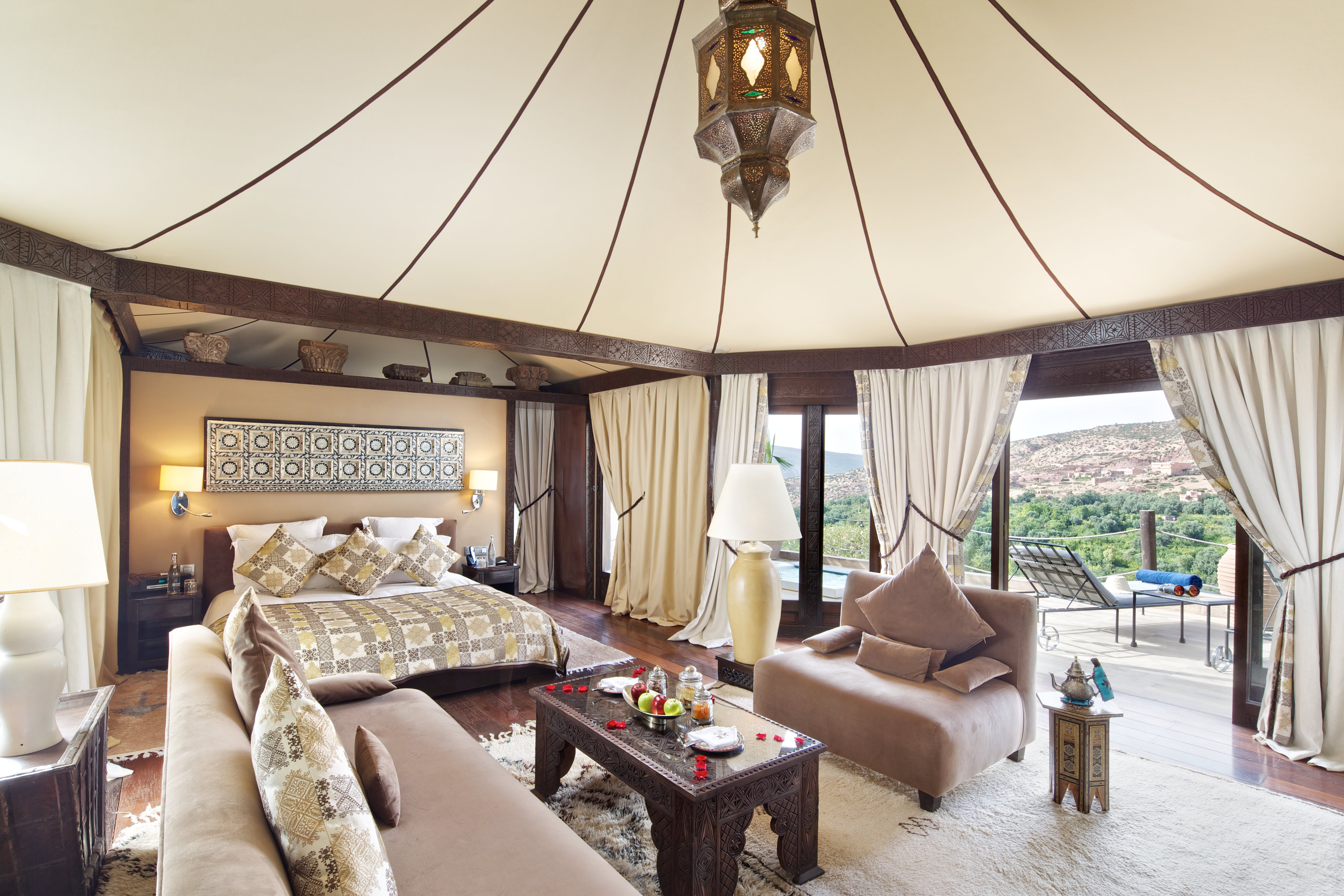
“It was a very sad and difficult time,” recalls Richard Branson, who was among the first on the scene after the quake hit and immediately got to work delivering aid to those in need. “It was heartbreaking but it showed the true strength and resolve of the Moroccan people who all came out to help and support each other.”
Now fully re-open, Kasbah Tamadot – meaning ‘soft breeze’ in the Berber language – has evolved and ushered in a new era of its journey.
Not only has the main house been lovingly restored to its former glory – complete with courtyards, secret staircases and petal-strewn pools – but there are improvements and new additions that have catapulted it into a whole new level of luxury.
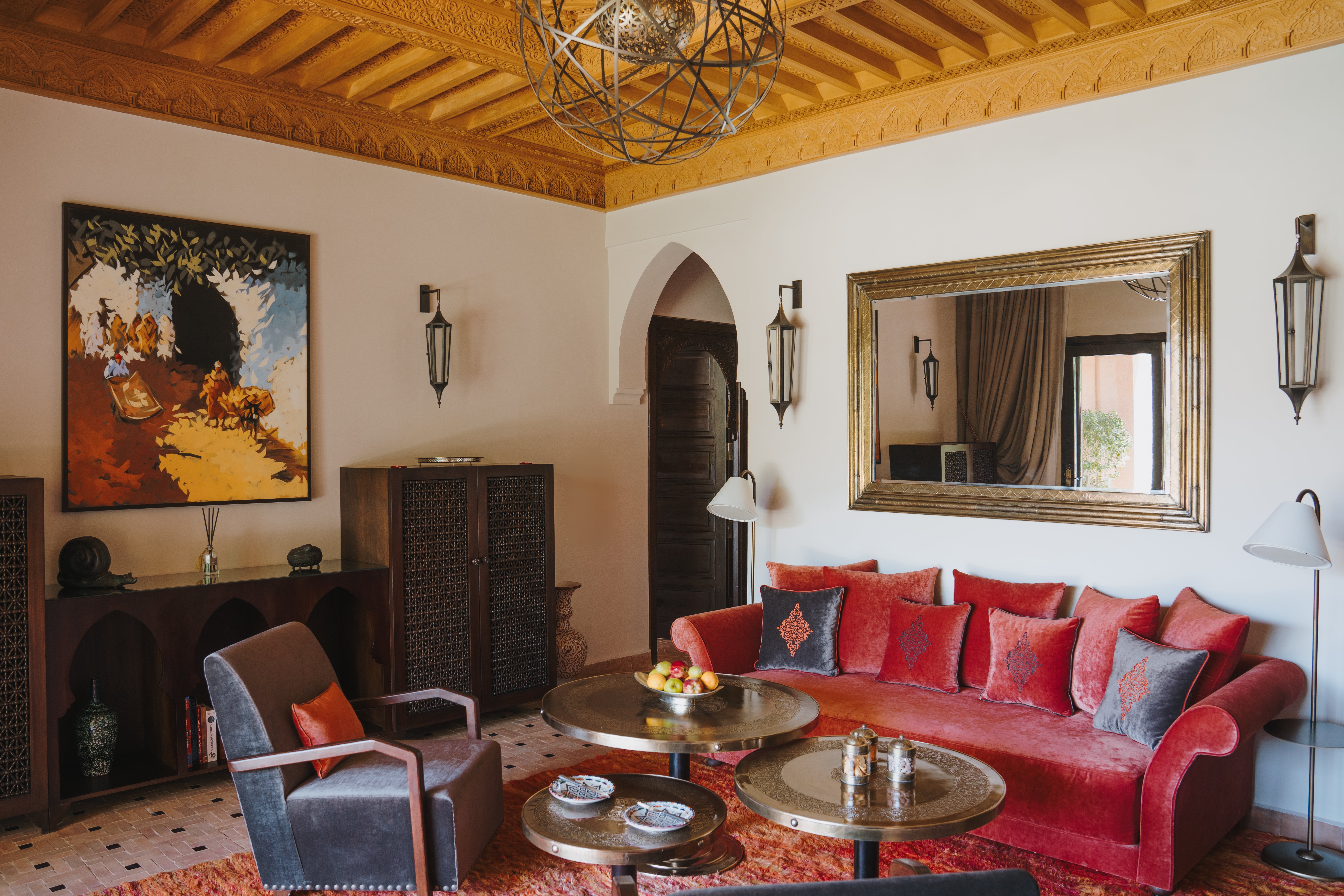
Read more: Overland from Margate to Marrakech – An art-filled journey
The main change is the introduction of six new riads located at the far end of the property and reached via a pleasant stroll along a pathway that weaves through gardens scented with mint, peppered with charming Moroccan antiques and frequented by curious peacocks.
The riads are modern and fancy, and remain true to Moroccan heritage, but are not the stars of the show. That honour belongs to Asayss, a new tented dining venue built on the site of an animal shelter previously occupied by donkeys, camels and goats. Fireplaces crackle in a room decorated with sweeping drapes, local artwork and delicate lanterns.
The food is decent, too, thanks to executive chef Yassine Khalal, who honed his craft at the Royal Mansour in Marrakech. His menu dances between the traditional (tasty lamb tagines served with prunes and roasted sesame seeds) and international (a highlight is the black truffle and cream cheese cannolo).
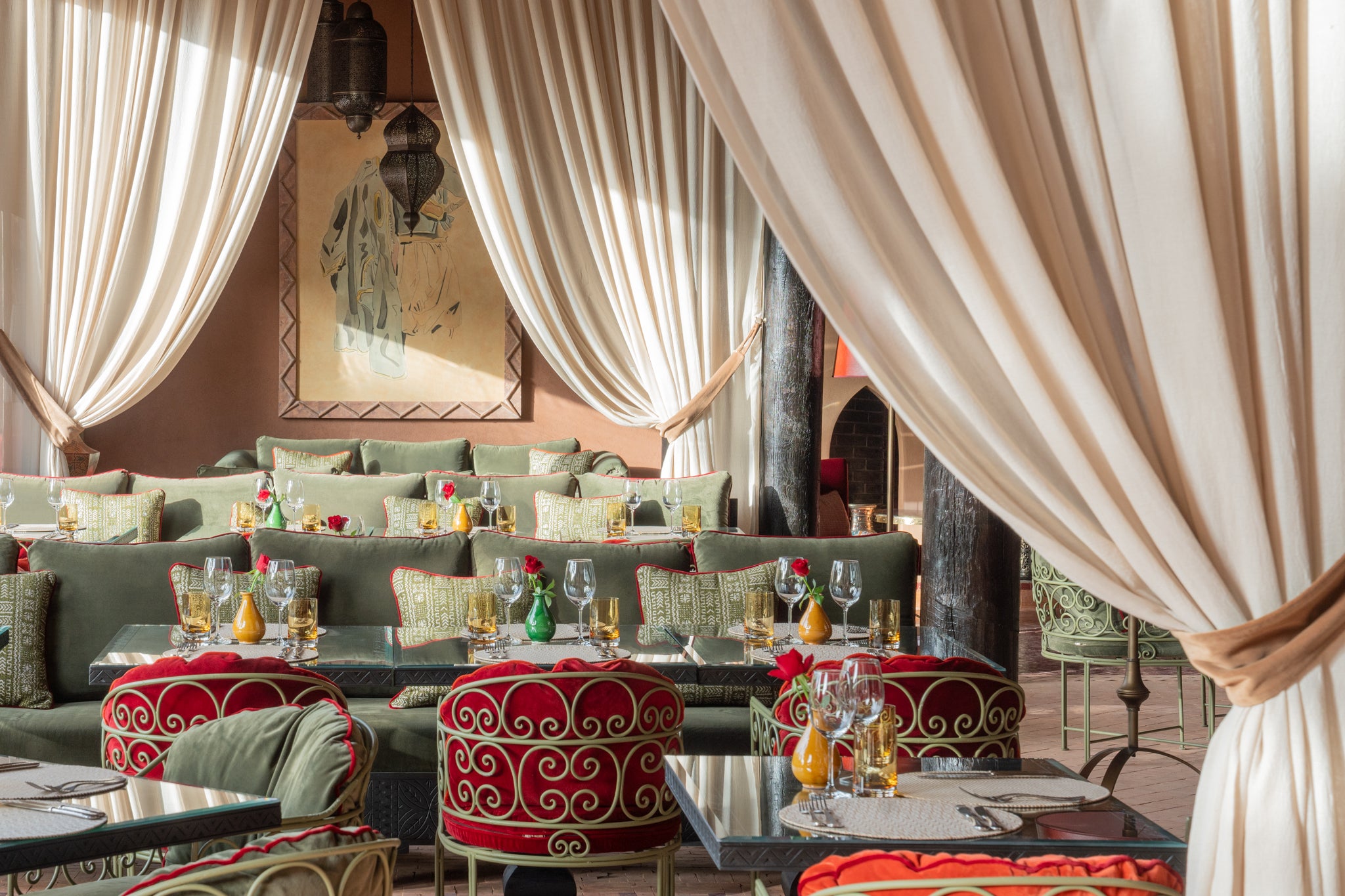
The earthquake is just the latest chapter in the property’s long and fascinating story. Originally built in the 20th century as a grand residence of the local French governor, it later changed hands and was acquired in 1989 by Venetian antiques dealer Luciano Tempo. It remained in his hands until it was discovered by Eve Branson – whose entrepreneurial son was about to fly around the world in a hot air balloon.
“Morocco is one of the best places to launch a balloon,” explains Richard Branson, “so we were there waiting for favourable conditions. There was a delay so Mum went off to the mountains for a day, came across Kasbah Tamadot and went over and knocked on the door. That evening she told me in no uncertain terms that I was to buy it.”
And he did. But not only the property itself but also Tempo’s vast and impressive collection of treasures, everything from old maps and ancient tapestries to heavy bronze chests, which remain on show and fill the place with a sense of history and grandeur.
Read more: The lesser-known Moroccan cities for a perfect winter sun holiday
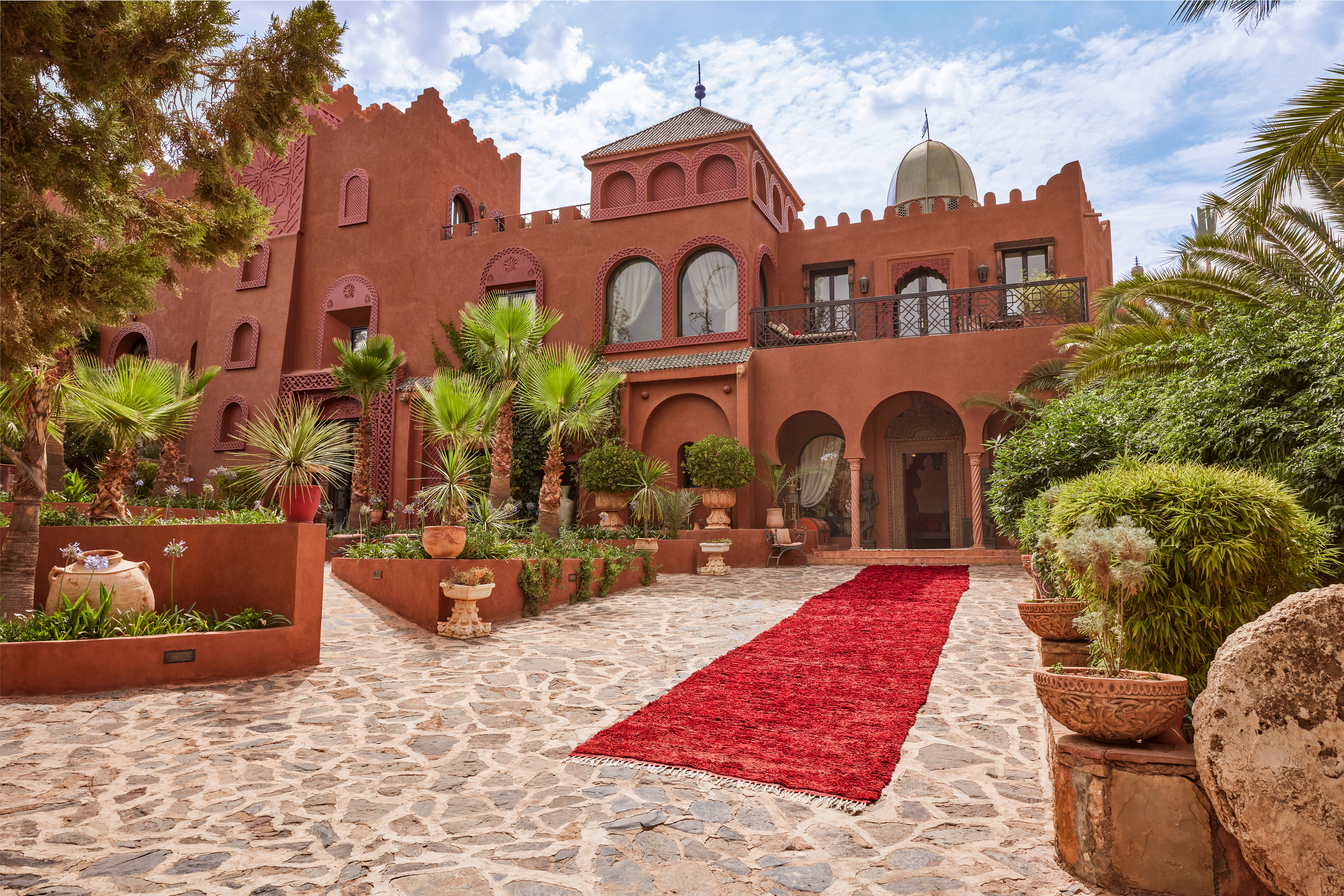
In 2005, after much work, the property opened and was added to Branson’s Virgin Limited Edition portfolio which also includes Necker Island, safari camps in Kenya and South Africa and a ski lodge in the Alps.
The family’s love affair with the region, and Morocco as a whole, grew from there. The clan’s matriarch set up the Eve Branson Foundation which is still going strong today and raised £1 million for the earthquake relief fund. Located a short distance from the hotel, its main objective is to empower local women through education and employment and guests are welcome to pop along to discover its efforts for themselves.
Richard Branson is a regular visitor, seeking solace in the surrounding hiking trails and steep mountain passes perfect for high-octane biking adventures (mercifully, e-bikes are also available). For those who prefer a more gentle approach to their holidays, cookery classes and visits to the nearby market town of Asni are also possible.
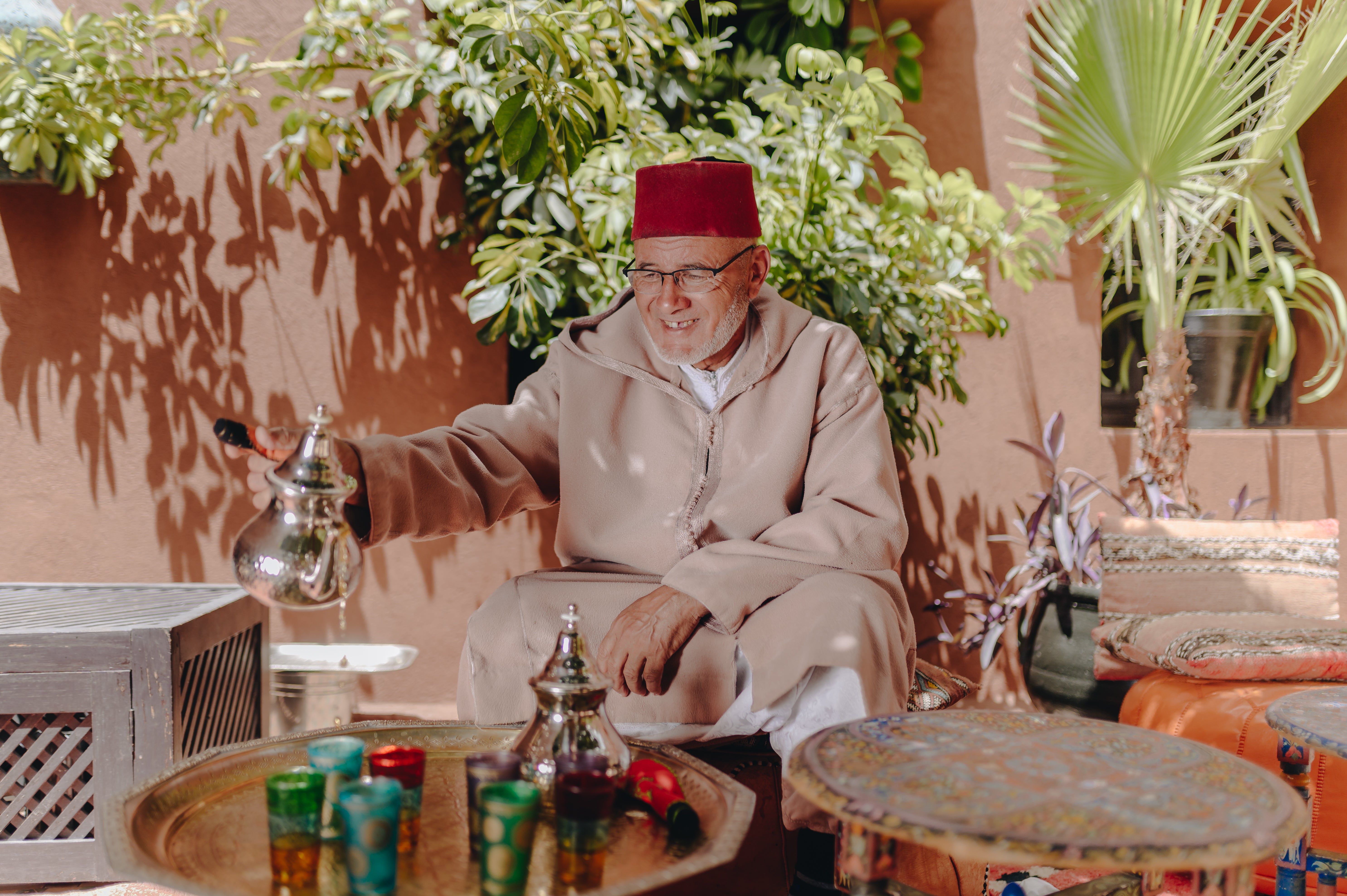
Despite the improvements and considerable changes at Kasbah, some things have stayed reassuringly the same. The large infinity pool, complete with shady day beds and valley views, is untouched as is the spa and heavenly hammam (a traditional Moroccan retreat of heated marble slabs where guests are scrubbed, doused and cleansed in a purification ritual that dates back centuries).
But the best bit of all? Local chap and former chef Mohammad has been part of the Kasbah Tamadot family for decades. After retiring he found he missed the place, so now spends his time sitting with guests in a shady courtyard and sharing his wisdom over a glass of sugary tea made with mint he picks himself in the garden. Life doesn’t get sweeter than that.
How to do it
Doubles at Kasbah Tamadot (virginlimitededition.com) start from £560. British Airways flies to Marrakech from London Heathrow and London Gatwick with fares starting from £112 return.
Read more: Why the Ouirgane Valley should be your next short break
Bookmark popover
Removed from bookmarks